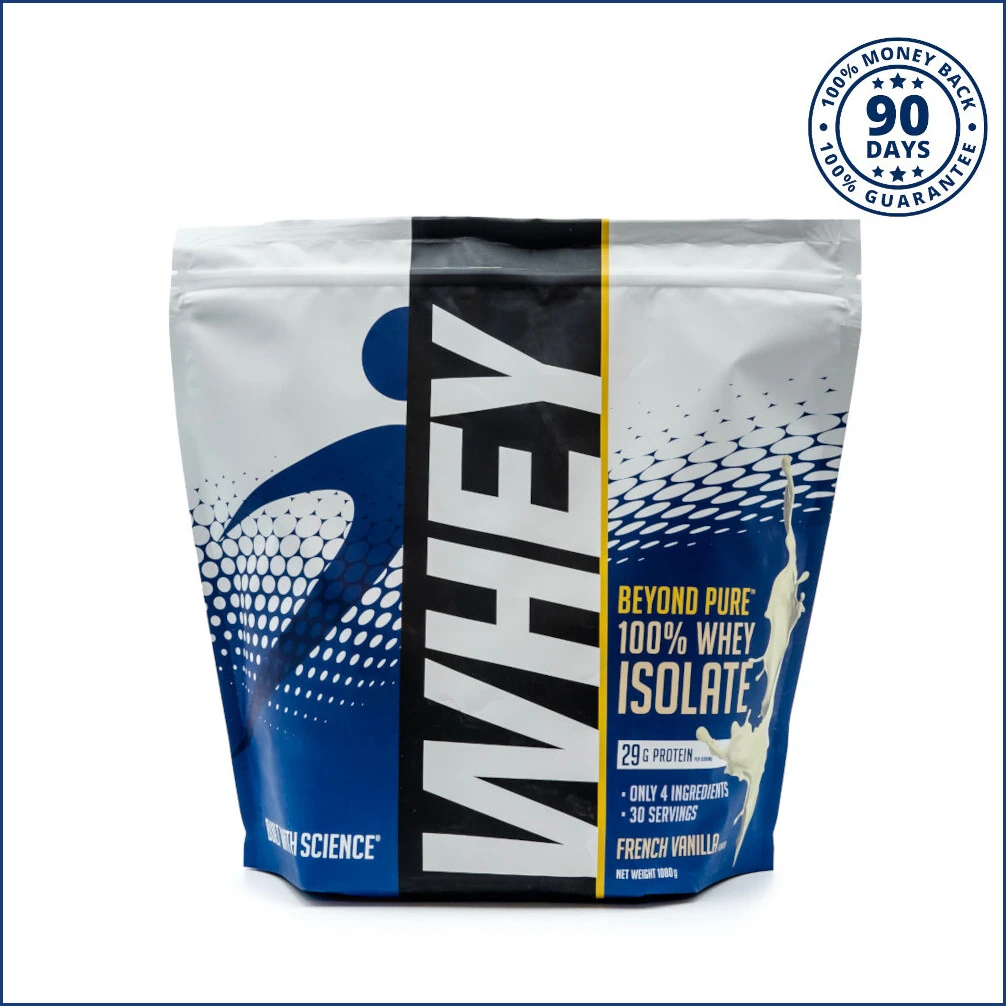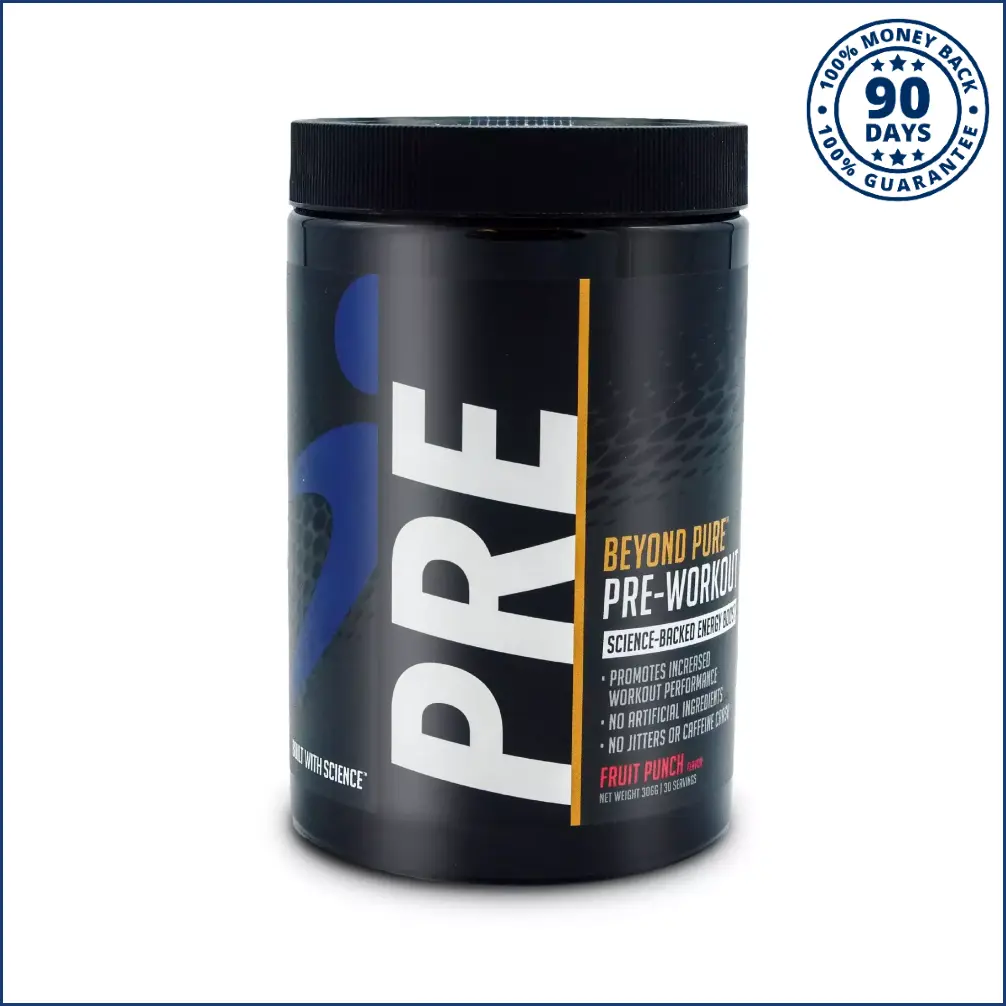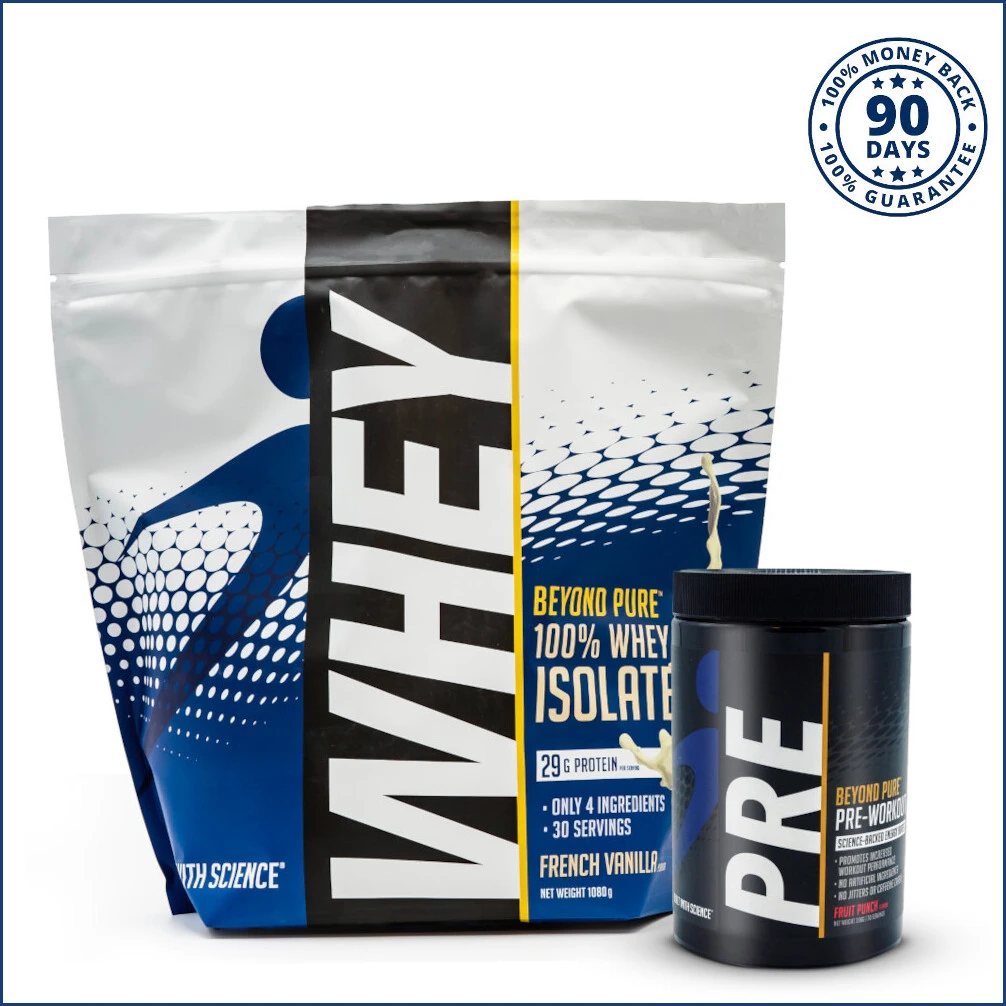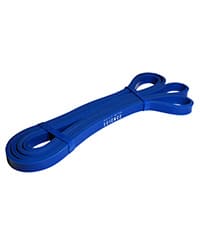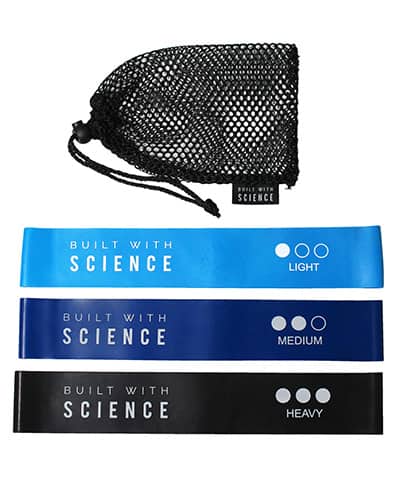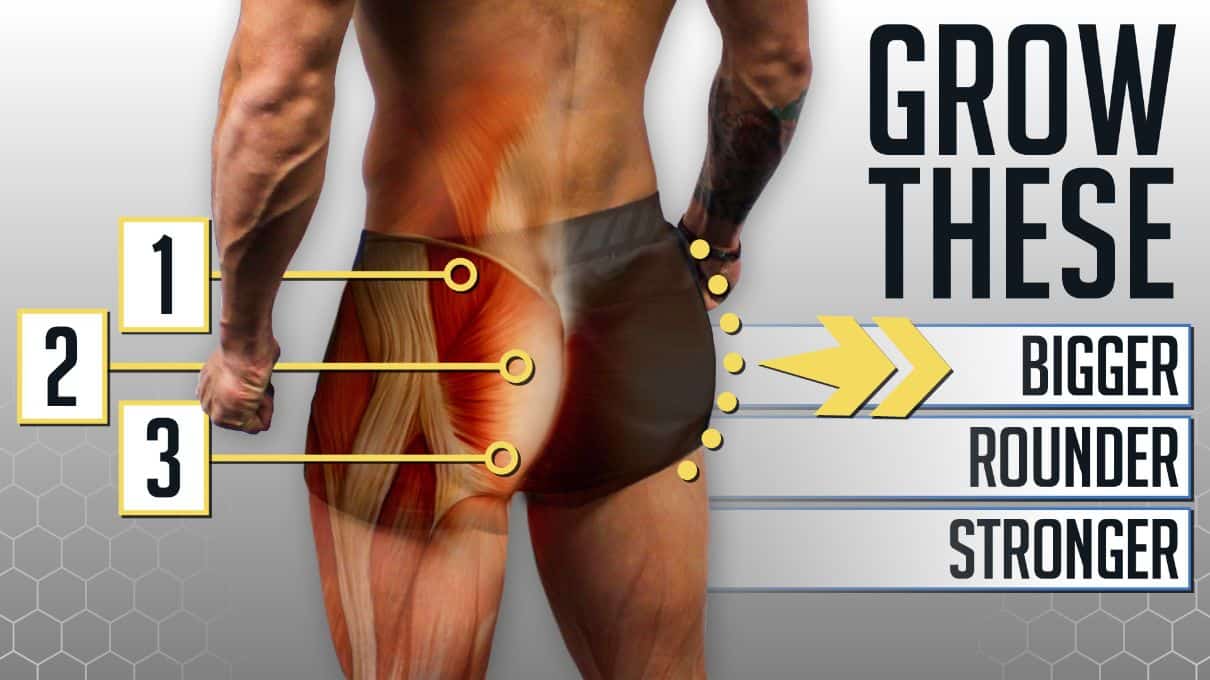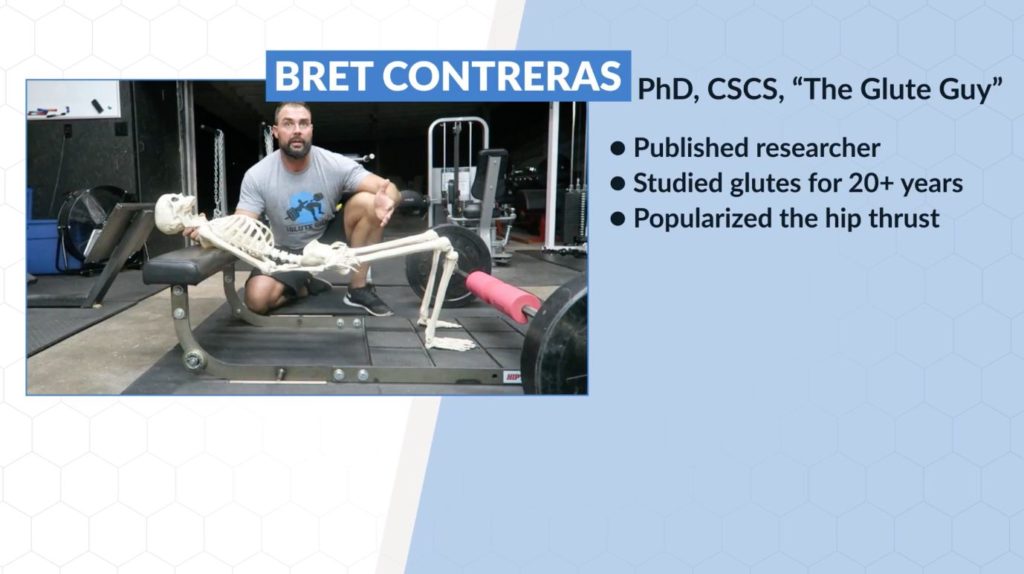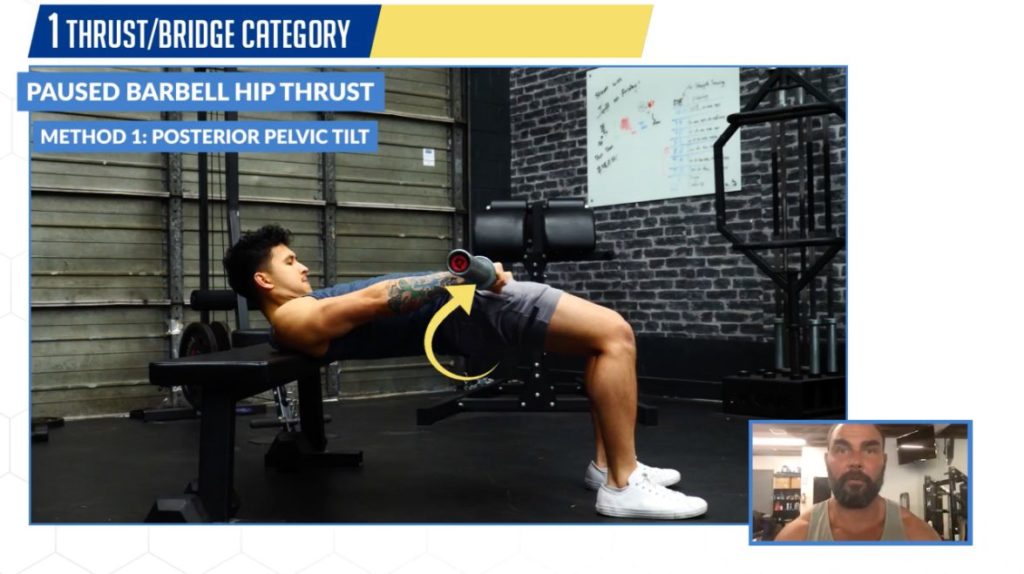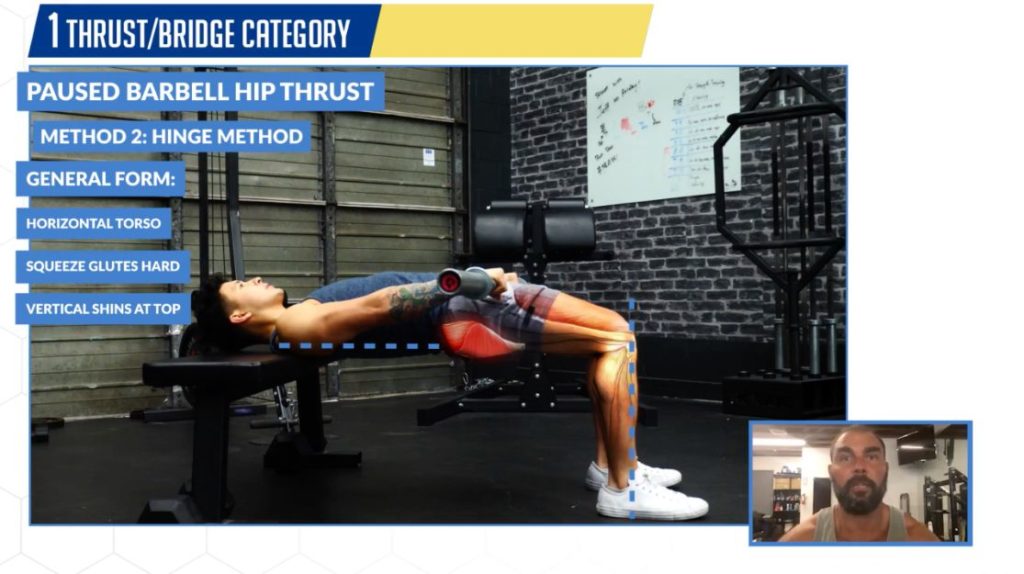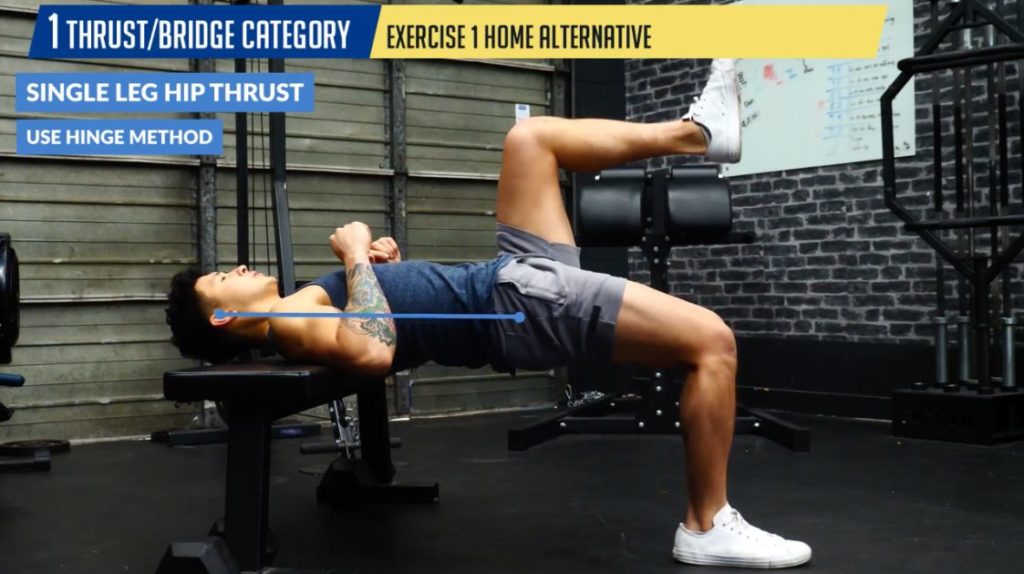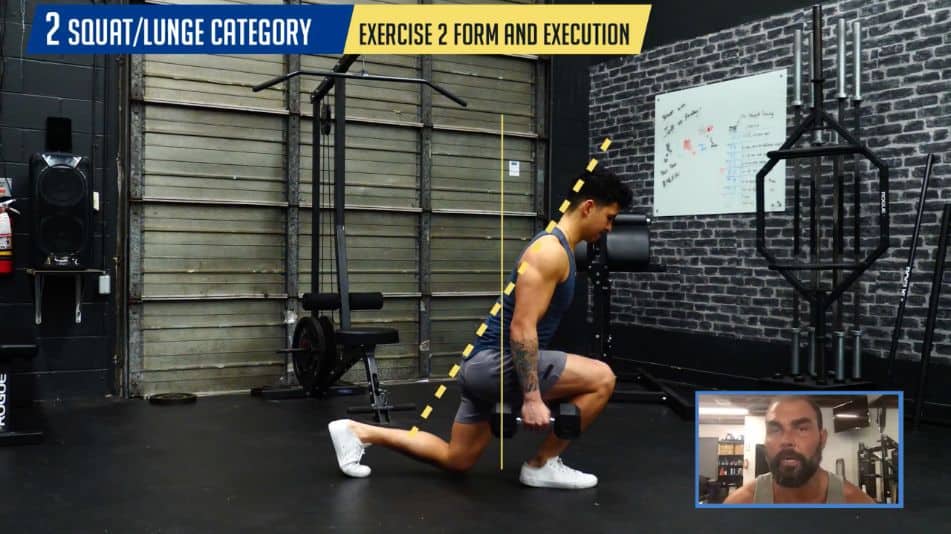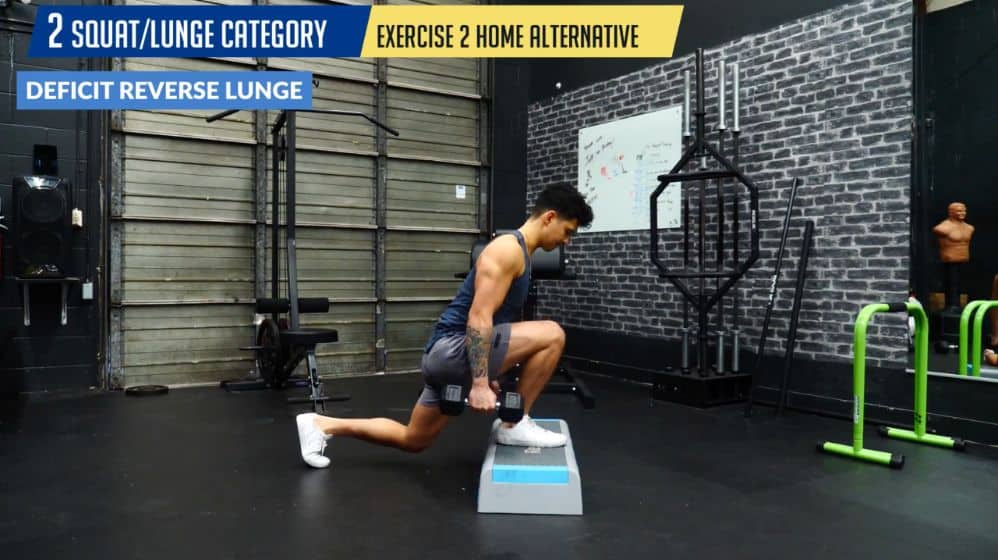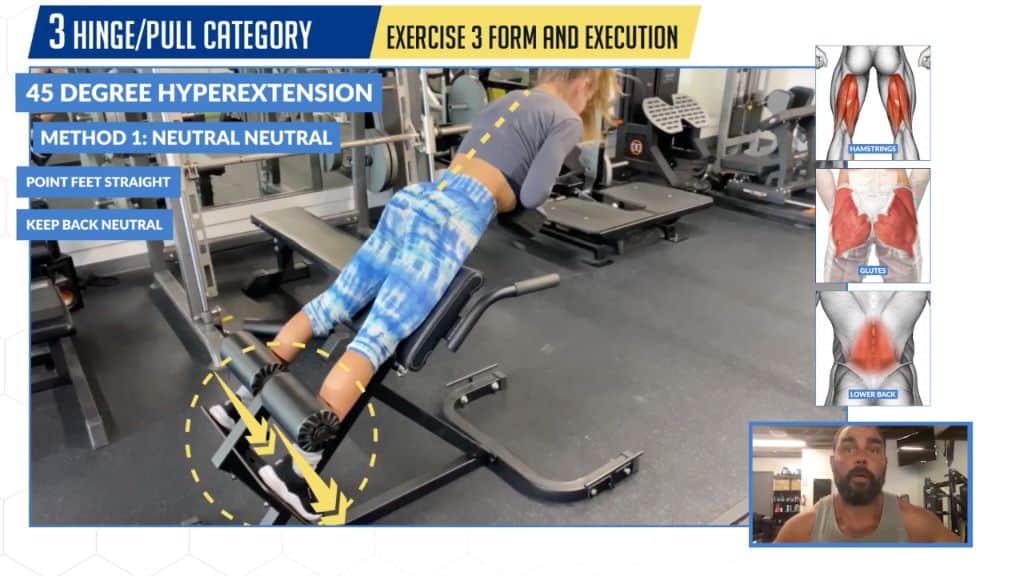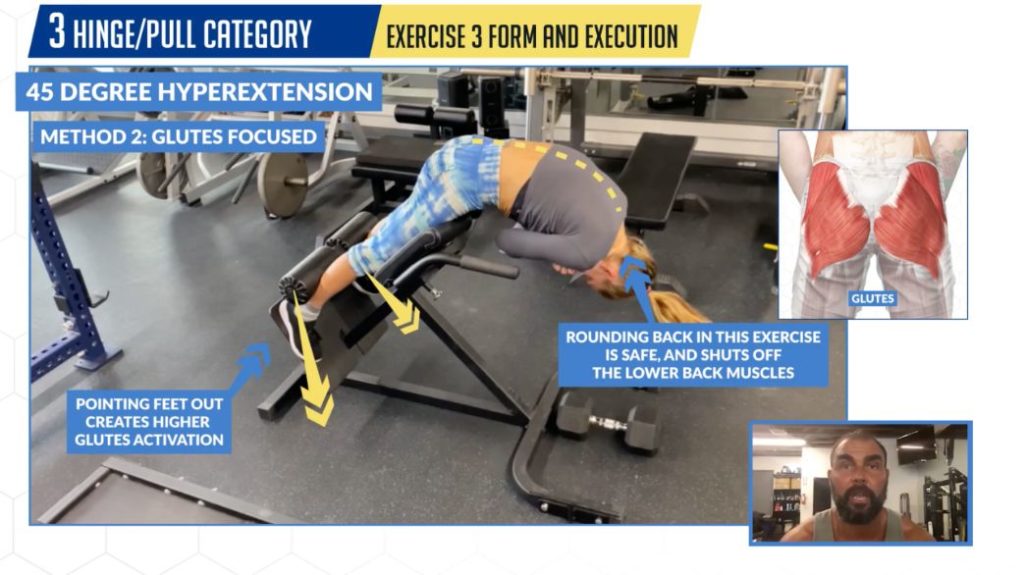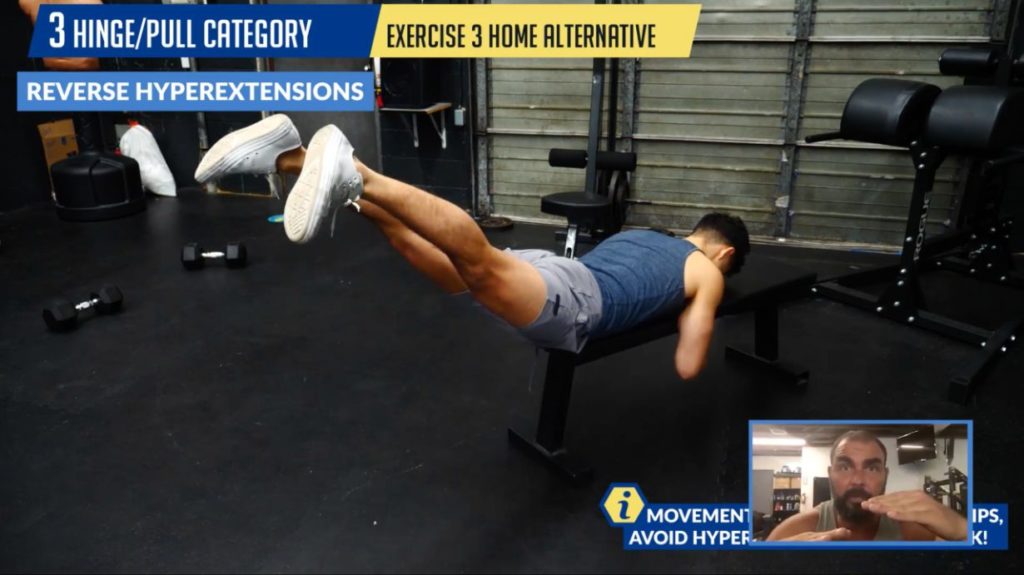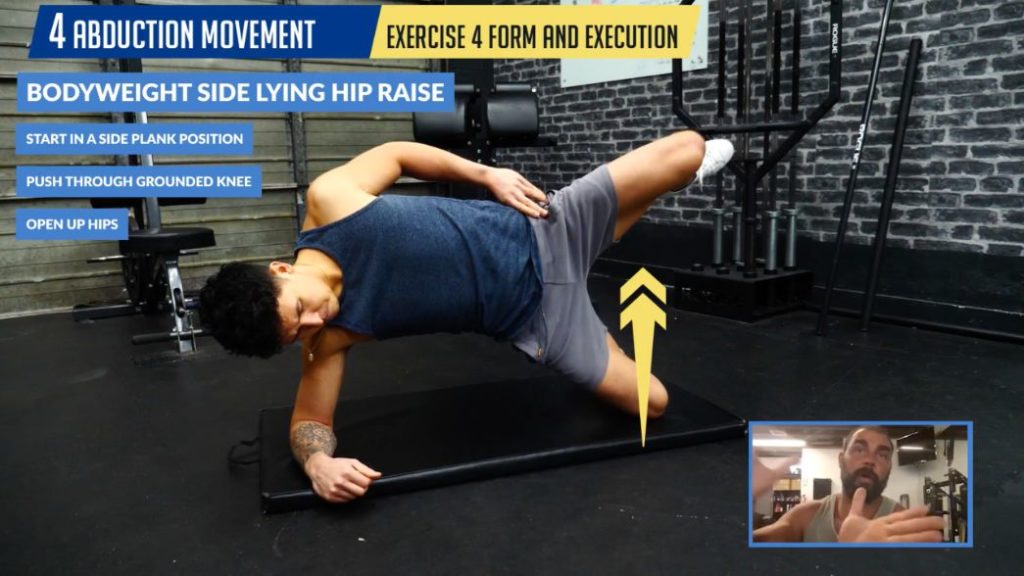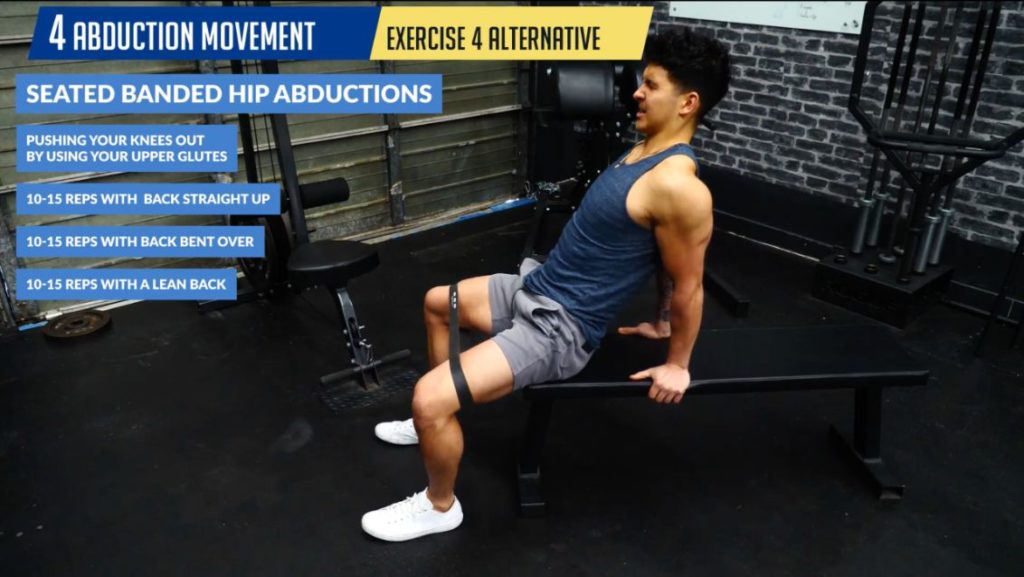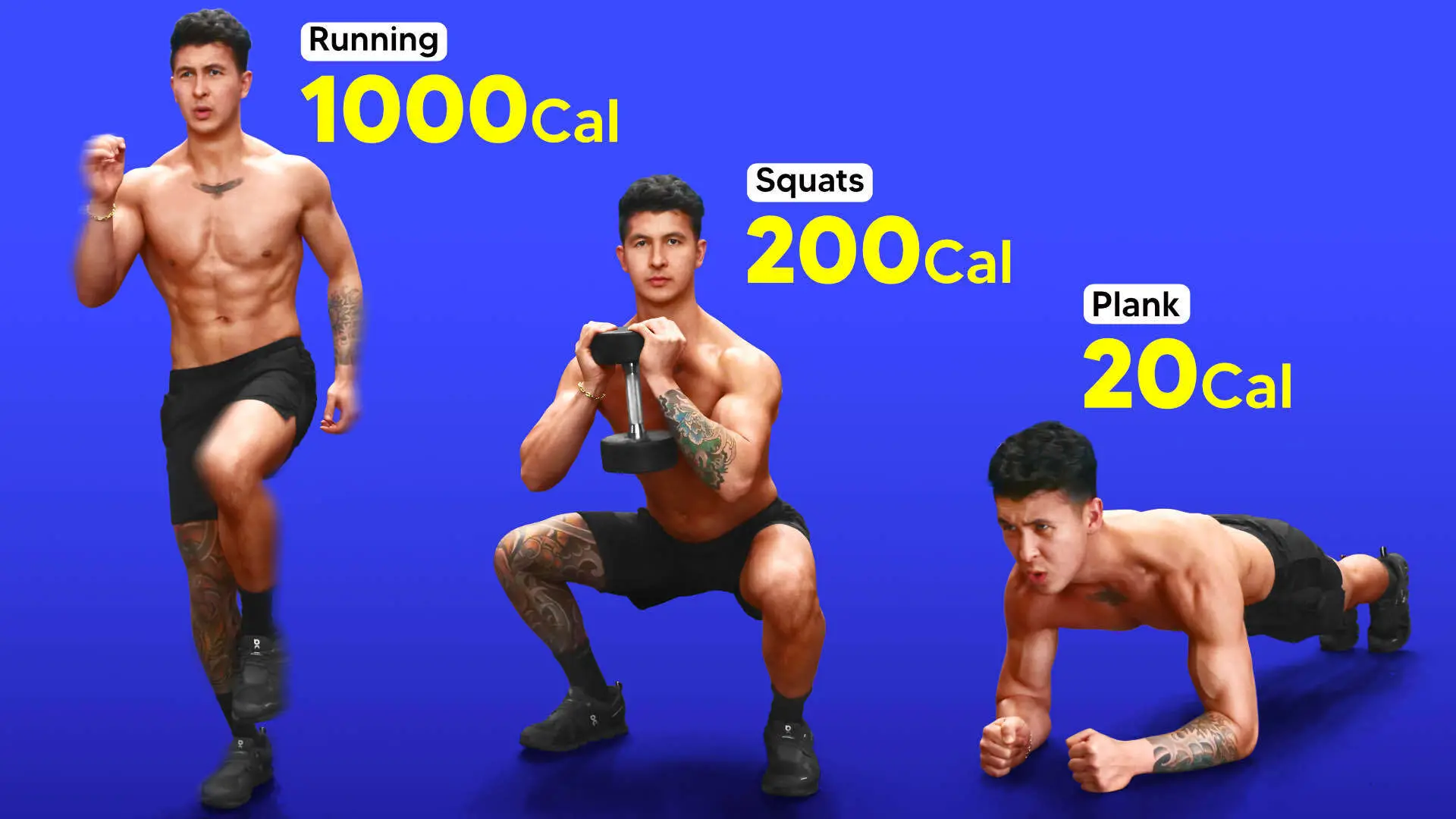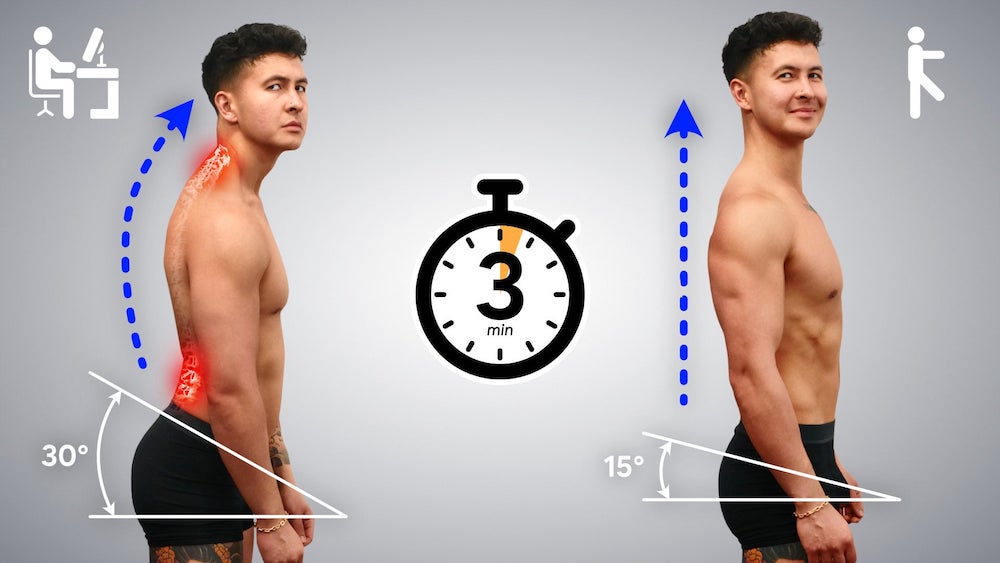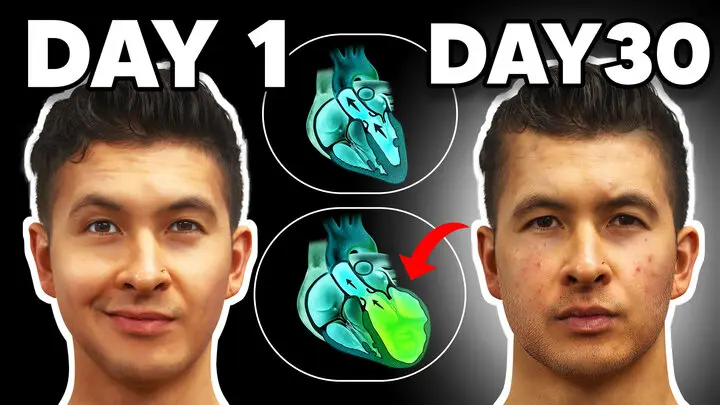The 4 BEST Glutes Exercises Ft. Bret Contreras (GYM OR HOME)
Struggling with developing and strengthening your glutes? Here, find the 4 best glutes exercises that'll give you a rounder, stronger butt.
The glutes are a powerful group of muscles that play a key role in many movements. And, of course, just look good when they’re well developed. On both men and women. But they’re also a muscle group that many tend to struggle with developing and strengthening. This can potentially lead to problems and imbalances elsewhere in the body. And can also lead to the dreaded pancake butt.
Just so you know: I make sure that nobody who signs up for my programs ends up with the dreaded pancake butt. I design each of my programs with the best science-backed exercises to target all muscle groups effectively (including the glutes) - so you have a well-rounded, impressive physique. Interested? Then:
Click the button below to take my analysis quiz to discover the best program for you:
↓
Implement The Right Variety Of Glutes Exercises For Best Results
So, how do you fix this? How can you maximize your glutes development? Well, the first step is to realize that they're designed to do more than just squat and deadlift. The truth is that by implementing the right variety of glutes exercises, you can experience much more overall growth and strength in the different regions and muscles that make up your glutes. Admittedly, the best exercises for the glutes will vary individually.
The Best Glutes Exercises Belong To 4 Primary Categories
Generally speaking, though, if we want to maximize our glutes development, then you’ll want to ensure that you’re training them with at least one exercise from each of the following 4 categories. And this applies to both men and women.
- Thrust/bridge exercise - Build the upper and lower glutes. Provides the most amount of tension on the glutes when they're in the fully contracted position.
- Squat/lunge exercise - Emphasizes the lower glutes and quads. Provides the most amount of tension on the glutes when they're in a fully stretched position.
- Hinge/pull exercise - Emphasizes the lower glutes and the hamstrings.
- Abduction movement - Mostly emphasizes the upper glutes by targeting the gluteus medius. Which is a muscle that's often neglected.
Picking The Best Glutes Exercises From Each Of The Categories
Choosing an exercise in each of these 4 categories helps provide total glutes development. And total leg development! Now as for what the best glutes exercises are for each of these categories... That will vary individually but some options are just better than others.
And to help us out with choosing what an appropriate exercise would be for each of these categories, we’ll rely on the expertise of Bret Contreras, aka the Glute Guy. A well known published researcher and author who’s had the pleasure of studying the glutes for over 20 years. And was actually the one who initially popularized the hip thrust!
Here’s what he recommended.
Category 1: Thrust/Bridge
Jeremy: So, Bret, going into the first category of a thrust or bridge movement for the entire gluteal region. What would you suggest is a good exercise to throw in here?
Bret: Hip thrust, I like a pause at the top, would be my exercise of choice for that category.
Jeremy: And in terms of execution, what are some cues and form tips you can give to help maximize glutes activation with this movement?
Bret: For the hip thrust, there are 2 general strategies. One is the PPT method. This is where you’re looking down, scooping the weight up and posteriorly tilting the pelvis into lockout.
Another method is the hinge method. This is where you think of the head, neck, and torso as a solid, straight unit. With the head, neck, and torso in alignment. Looking forward at the bottom position - then up at the top position. Keeping back neutral.
In general, you want a horizontal torso at lockout. You want neutral or posterior tilted hips and squeeze glutes hard. You also want vertical shins at the top, which happens by positioning feet not too close or too far away.
Jeremy: Ok, got it. So knees stacked over the heels. Avoid overextending at top position. And focus on squeezing glutes as hard as I can at the top.
Bret: Yes. The main thing is to avoid overextending and excessive anterior pelvic tilt.
Do The Single-Leg Hip Thrust If You Don't Have Access To Equipment
And if you're working out at home and limited in terms of equipment? A suitable alternative that Bret recommends would be the single-leg hip thrust. Have your back resting on a bench, couch, or any elevated platform. And for this movement, you’ll want to execute it using the “hinge” method. As Bret previously described, this is where you focus on keeping your head, neck, and torso in alignment and neutral as you execute each rep.
Category 2: Squat/Lunge
Jeremy: Now going into the squat lunge movement for the lower glutes and quads, what would you recommend here?
Bret: So, if you follow Dr. Brad Schoenfeld and his research, he’ll say that mechanical tension is the most important component of hypertrophy. But metabolic stress and muscle damage likely play a role. With the hip thrust, you get a lot of mechanical tension. And also get quite a bit of metabolic stress. But you don’t go deep and don’t get much of a stretch in the glutes.
With the walking dumbbell lunge, you get a much deeper stretch in the glutes. In addition, the walking lunge is the most difficult at the bottom position in the stretched position. Whereas the hip thrust is the most difficult at the top position during lockout. So with the walking lunge, you’ll be able to get more muscle damage.
Jeremy: As for form and execution, what are some tips you’d give for this movement?
Bret: When you do the lunge, you want to do them in a way that maximizes the glutes. Instead of:
- Taking too short of a stride - Which will work the quads more OR
- Taking too long of a stride - Which will work the hamstrings more
...Take a stride length such that your shin angle at the bottom of movement is just slightly forward. So that the front of your knee lines up with the front of your shoes. That is, to me, the form that maximizes glute activation. And you’re going to lean your torso a little bit. But not too much (around ~20 degree torso lean, not a 45 degree lean).
Also, focus on pushing through the heel and avoid letting the hips shoot up and turning this into a “Good Morning” exercise.
Do The Deficit Reverse Lunge If You Don't Have Access To Equipment
And for those with limited equipment, a suitable home alternative would be the deficit reverse lunge. This is where you elevate your front foot onto any elevated platform and perform it in a similar way that Bret mentioned you would the dumbbell walking lunge.
If you're enjoying learning about the science behind exercise selection (i.e. why certain exercises are better than others for a particular muscle group), then you're absolutely going to love working with myself and the BWS team. In our 2-on-1 coaching program, we walk you through the rationale of everything prescribed to you. Your training program, diet, etc. At the end of it, you're going to achieve your full potential. And most importantly - understand how you did it. Find out more about how my team of experts (and myself) and help you:
Click the button below to find out more about the 2-on-1 coaching program:
↓
Category 3: Hinge/Pull
Jeremy: Next, we have the hinge or pull movement for the lower glutes and hamstrings. What would you suggest here?
Bret: My choice would be the 45-degree hyperextension. When I was doing EMG experiments I was very surprised with how high the glute activation was. But you also get very high hamstring activation because the knees are straight and therefore the knees are in a much better position to produce force when compared to a thrust or bridge. And it’s also a very safe exercise. You don’t get much as many injuries as you do with this exercise. So you can do them frequently without having to worry.
Jeremy: And I find that executing this exercise seems to be pretty tricky for a lot of individuals. Are there any tips you can provide to help clear things up?
Bret: We do this two different ways. One is the neutral-neutral. Neutral feet, neutral spine. That’s going to work the hamstrings, glutes, and erectors really well.
If you’re trying to bias the glutes, however, you’ll want to round over at the spine fully. This shuts down the erectors (lower back), which makes it now a pure glutes/hamstring movement. Turning out the feet to 45 degrees also creates higher glutes activation. When people try the rounded back method, it’s the very first time they’ll feel their glutes fatigue first in a back extension.
Do The Reverse Hyperextensions (Bench/Countertop) If You Don't Have Access To Equipment
Jeremy: And as far as alternatives, this one does seem to be a little tricky to replace at home. But would you say that something like reverse hyperextensions done on a bench or even a countertop would be suitable?
Bret: Yup. Make sure you do it controlled. If you have a tall surface, you can do straight legs. I like doing the spread eagle method. Start narrow at the bottom and end wide at the top. If you have a low bench, like say you just had a bench press, you can still do them. But you would just bend the legs at the bottom and kick the legs at the top.
Category 4: Abduction
Jeremy: Lastly we have the abduction movement for the upper glutes. What exercise would you recommend here? And how exactly do we go about performing it?
Bret: So, I choose the bodyweight side-lying hip raise. What’s great about this is that it’s body weight and can be done anywhere. This is going to hit the upper glutes. When you’re at the bottom of the movement, it’s going to hit the entire glute (gluteus maximus and gluteus medius). But when you’re at the top, it’s going to focus more on the gluteus medius (upper glutes).
To do this:
- Start in a side plank position on your elbow with your hips and knees on the ground
- Then you push through the grounded knee, push as tall as you can and aim to achieve maximal hip separation
- When you’re at the top, drive the hips forward and at the bottom sink the hips back
You’re going to feel this in the glutes very well. Do 3 sets of 12 with a controlled tempo. My glutes are lit up after 3 sets of these.
Do The Seated Banded Hip Abductions If You Don't Have Access To Equipment
Another great alternative for this and a move recommended by Bret is the seated banded hip abductions. It's one of the best glutes isolation exercises around. Here, you wrap a mini-band around your knees and perform reps of pushing your knees out by using your upper glutes. Perform 10-15 reps with your back straight up, 10-15 reps with your back bent over, and then another 10-15 reps with a lean back. These various positions will just help stimulate different fibres and regions of your glutes.
Summary Of Best Glutes Exercises (With Sets And Reps)
To sum everything up for you, here are the recommended best glutes strengthening and building exercises with reps and sets for each of the 4 categories:
Thrust/Bridge Category (Upper & Lower Glutes)
Paused Barbell Hip Thrust: 4 sets of 8 reps (with 3s pause)
- Alternative = Single Leg Hip Thrust
Squat/Lunge Category (Lower Glutes + Quads)
Walking DB Lunge: 3 sets of 20 reps (10 steps each leg)
- Alternative = Deficit DB Reverse Lunge
Hinge/Pull Category (Lower Glutes + Hamstrings)
DB 45 Degree Hyperextension: 3 sets of 15 reps
- Alternative = Reverse Hyperextensions
Abduction (Upper Glutes)
Side Lying Hip Raise: 3 sets of 12 reps
- Alternative = Seated Banded Hip Abduction
Takeaway
You can add these exercises into your weekly routine as needed, or even perform it as a complete lower body workout on its own. But hopefully, you were able to see that to speed up your results and train efficiently, you need to pay close attention to both the exercises you include in your routine, but also how you perform them.
And for a complete step-by-step science-based program that shows you exactly how to train, eat, and recover week after week to maximize your results, then:
Click the button below to take my analysis quiz to discover the best program for you:
↓
Anyways that’s it for today guys! I hope you all enjoyed it! Don’t forget to give me a follow and connect with me on Instagram, Facebook, and Youtube as well, in order to stay up to date with my content. And of course, big thank you to Bret for his help on this article. To read more of his work and the various programs he offers, just head on over to bretcontreras.com.

